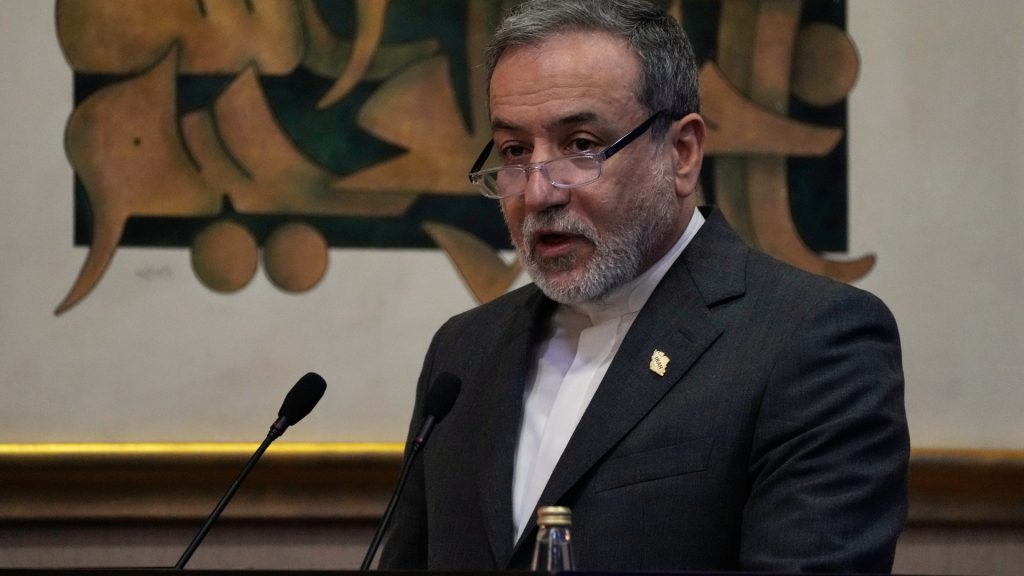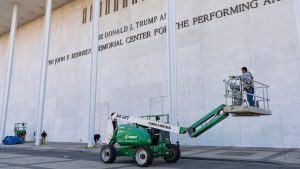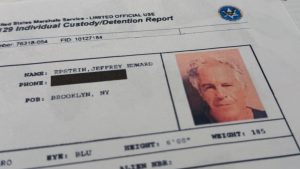Iran says it has no ‘undeclared’ nuclear enrichment ahead of IAEA meeting

Iran has stopped enriching any “undeclared” uranium at every nuclear site in the country. That’s according to Iranian Foreign Minister Abbas Araghchi, who was responding to a question from an Associated Press reporter during a summit on Sunday.
The summit took place shortly before a three-day meeting of the International Atomic Energy Agency’s (IAEA) Board of Governors kicks off in Vienna.
Iran says nuclear program complies with int’l law
According to the AP journalist, who was granted a three-day visa to attend the summit, Araghchi said, “There is no undeclared nuclear enrichment in Iran,” adding, “All of our facilities are under the safeguards and monitoring.”
He cited a string of U.S.-led June attacks on three of the country’s key nuclear enrichment sites –– Fordo, Isfahan and Natanz –– which were part and parcel of Iran’s 12-day war with Israel. Mohammad Eslami, the head of the Atomic Energy Organization of Iran, added that the threat of further attacks still looms.
“Our security situation hasn’t yet changed. If you watch the news, you see that every day we are being threatened with another attack,” Eslami said. “Every day we are told if you touch anything you’ll be attacked.”
Upcoming IAEA meeting
The IAEA’s Board of Governors is set to meet in Vienna from Nov. 19 to 21. During that time, the international body will discuss next steps to monitor Iran’s nuclear program, a program which the country has long maintained serves peaceful, civilian purposes only.
“Iran’s right for enrichment, for peaceful use of nuclear technology, including enrichment, is undeniable,” Araghchi told reporters Sunday. “We have this right and we continue to exercise that and we hope that the international community, including the United States, recognize our rights and understand that this is an inalienable right of Iran and we would never give up our rights.”
Iranian media outlet, Tehran Times, reports that three European nations –– Britain, France and Germany –– will present a new draft resolution to the IAEA, calling for revised protocols against Iran’s nuclear program. According to Tehran Times, the resolution is still being negotiated by the three countries, and it’s unclear if the U.S. will back it.
However, Iran’s ambassador to the IAEA, Reza Najafi, has described any further restrictions on the country’s nuclear program as “unreasonable and coercive.”
“Pressuring IAEA Director General Rafael Grossi to base reports on expired UN Security Council resolutions is unlawful, unjustified, and counterproductive,” Najafi said. “Such actions not only complicate diplomatic efforts but also undermine negotiations. Importantly, they will not alter Iran’s compliance with its safeguards obligations, which have been lawfully implemented under the supervision of IAEA inspectors.”
Also on Friday, Najafi decided to table a resolution he had proposed, calling for an end to all strikes on nuclear facilities, in accordance with the IAEA General Conference resolutions and the 2010 Treaty on the Non-Proliferation of Nuclear Weapons Review Conference. He accused the U.S. of exerting “intense pressure and threats” on nations that supported the proposal.
“Inaction in the face of such aggression cannot be equated with neutrality,” Najafi told the IAEA General Conference of his resolution on Friday. “It only normalizes unlawful behavior and encourages its repetition. Peaceful nuclear facilities — meant to symbolize transparency and trust — would instead become military targets, putting the entire non-proliferation regime at grave risk.”
IAEA corroborates Iran’s statements
In late October, the IAEA, which operates under the United Nations, said that Iran does not seem to be “actively” enriching uranium. However, the group added that they have noticed movement at Iran’s nuclear sites.
IAEA Director General Rafael Grossi said inspectors have not seen any activity via satellite that shows Iran has accelerated its uranium production. Grossi said Iran’s enrichment levels hadn’t progressed further than where they were when the country’s 12-day war with Israel began in June.
“However, the nuclear material enriched at 60% is still in Iran,” Grossi clarified. “And this is one of the points we are discussing because we need to go back there and to confirm that the material is there and it’s not being diverted to any other use.”
Sixty percent enrichment is near weapons-grade. The country had been enriching its uranium up to that point when Donald Trump pulled the U.S. out of the Iran nuclear agreement during his first term in office.
Iran has a tenuous relationship with the IAEA. In July, the country suspended its cooperation with the nuclear watchdog agency, citing Israeli and U.S. military strikes on its uranium-enrichment facilities. The move was made official when President Masoud Pezeshkian signed a bill into law on July 2, halting cooperation with the organization.
Iran asks US to pay up
Meanwhile, earlier this week, Iran asked the U.N. to punish the United States and Israel — and to order them to pay up. In a letter, Araghchi asked U.N. Secretary-General António Guterres and the Security Council to take “appropriate measures” against the United States and Israel and to order reparations for the June strikes on its three nuclear facilities.
Tehran’s demand is based on President Donald Trump’s recent statement that he was in charge of Israel’s initial attack.
The letter reportedly demands that Washington “fully compensate Iran and Iranian citizens for the material and moral damages” resulting from the strikes. To that end, Tehran’s letter calls for an emergency Security Council session, an independent investigation, sanctions and a U.N. General Assembly condemnation. The letter also notes that inspections of the damaged nuclear sites remain suspended under Iranian law.
The post Iran says it has no ‘undeclared’ nuclear enrichment ahead of IAEA meeting appeared first on Straight Arrow News.





